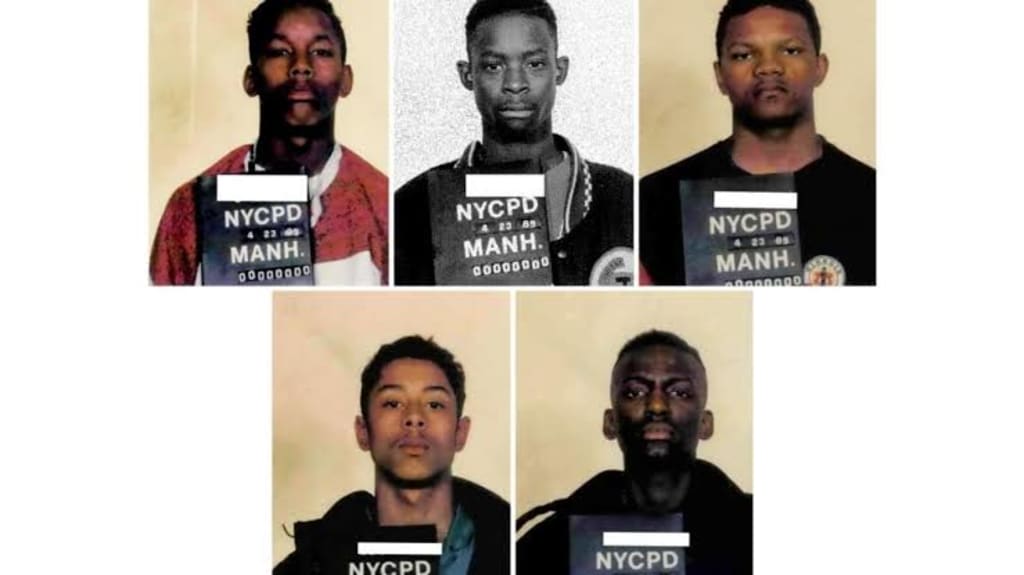The Central Park Five Case: A Heartbreaking Tale of Injustice and Racial Bias
The Central Park Five Case (1989): Five teenagers were wrongfully convicted of assaulting and raping a female jogger in Central Park, New York City. The case exposed racial bias in the criminal justice system and sparked discussions about wrongful convictions and coerced confessions

The Central Park Five case of 1989 in New York City serves as a heartbreaking reminder of the flaws in the criminal justice system and the devastating impact of racial bias. Five African American and Hispanic teenagers - Antron McCray, Kevin Richardson, Raymond Santana, Korey Wise, and Yusef Salaam - were wrongfully accused of assaulting and raping a female jogger in Central Park. The case sparked public outrage and media sensationalism, leading to their convictions based on coerced confessions. Decades later, the true perpetrator, Matias Reyes, confessed and provided DNA evidence that exonerated the Central Park Five. The case exposed the urgent need for reform, racial justice, and empathy in the pursuit of justice. Their exoneration became a rallying cry for criminal justice reform and the protection of the innocent from a system tainted by prejudice.
In 1989, a shocking incident in Central Park, where a female jogger was brutally assaulted and raped, ignited public fear and outrage. The crime prompted the authorities to quickly apprehend the perpetrators, leading to the wrongful accusations and arrests of five teenagers, later known as the Central Park Five.
The Central Park Five, all African American and Hispanic youths, faced aggressive police interrogations and coerced confessions during their trials. Their confessions, inconsistent and riddled with inaccuracies, were used as crucial evidence against them, leading to their wrongful convictions.
Racial bias played a significant role in the case, as the media perpetuated stereotypes, portraying the young boys as "wilding" criminals. The teenagers' race and ethnicity contributed to their swift and harsh condemnation in the eyes of the public and the media.
Years later, in 2002, Matias Reyes, who had been incarcerated for unrelated offenses, confessed to being the sole assailant in the Central Park attack. DNA evidence corroborated his confession, leading to the exoneration of the Central Park Five. The shocking revelation exposed the failures of the criminal justice system and the devastating impact of racial bias.
The exoneration of the Central Park Five was a bittersweet victory, as the years spent in prison had irreversibly changed the trajectory of their lives. The case highlighted the vulnerabilities of marginalized communities to wrongful convictions and systemic injustices.
The Central Park Five's wrongful convictions fueled discussions about the urgent need for reform within the criminal justice system. It prompted critical evaluations of interrogation practices and the dangers of relying solely on coerced confessions without corroborating evidence. The case underscored the importance of DNA technology in exonerating the innocent and accurately identifying the guilty.
The journey of the Central Park Five inspired a powerful movement for justice and criminal justice reform. Their resilience in the face of adversity became a beacon of hope for others wrongly convicted and motivated advocates to address systemic injustices and racial bias within the legal system.
The case of the Central Park Five continues to resonate, sparking conversations about empathy, racial justice, and the importance of protecting the innocent from an unjust system. It serves as a searing reminder of the urgent need to confront racial bias and ensure a fair and just legal process.
Their exoneration became a testament to the indomitable human spirit, as they transformed their painful experiences into a call for change and justice. The Central Park Five's journey inspires a collective commitment to prevent future miscarriages of justice, uphold fairness, and equality, and ensure that all individuals are treated with dignity and respect within the criminal justice system.
In conclusion, the Central Park Five case stands as a tragic example of the injustices and racial bias prevalent in the criminal justice system. The wrongful convictions of Antron McCray, Kevin Richardson, Raymond Santana, Korey Wise, and Yusef Salaam exposed the urgent need for reform and empathy in the pursuit of justice. Decades later, their exoneration continues to inspire calls for racial justice, criminal justice reform, and a commitment to protecting the innocent from the grip of an unjust system. The Central Park Five's resilience and strength in the face of adversity serve as a powerful reminder of the necessity to confront racial bias, uphold fairness and equality, and ensure a just and equitable society for all.





Comments
There are no comments for this story
Be the first to respond and start the conversation.